Women Engineers Leading the Way in Disaster-Resilient School Reconstruction
April 2, 2024
In the wake of disasters, rebuilding shattered public infrastructure involves more than constructing new structures. It is also about fostering resilience, empowering individuals, and creating spaces that can withstand future hazards. Achieving resilience requires addressing gender disparities within the construction sector. However, according to the 2023 Global Gender Gap Report, women represent only 25% of entry-level positions in the construction sector, while their presence dwindles to just 12% in C-suite roles.
Despite these challenges, in Central Sulawesi Province, women engineers have exemplified resilience and empowerment through their groundbreaking contributions. These engineers have truly walked the talk, rewriting the narrative of the construction field, one empowered woman engineer at a time.
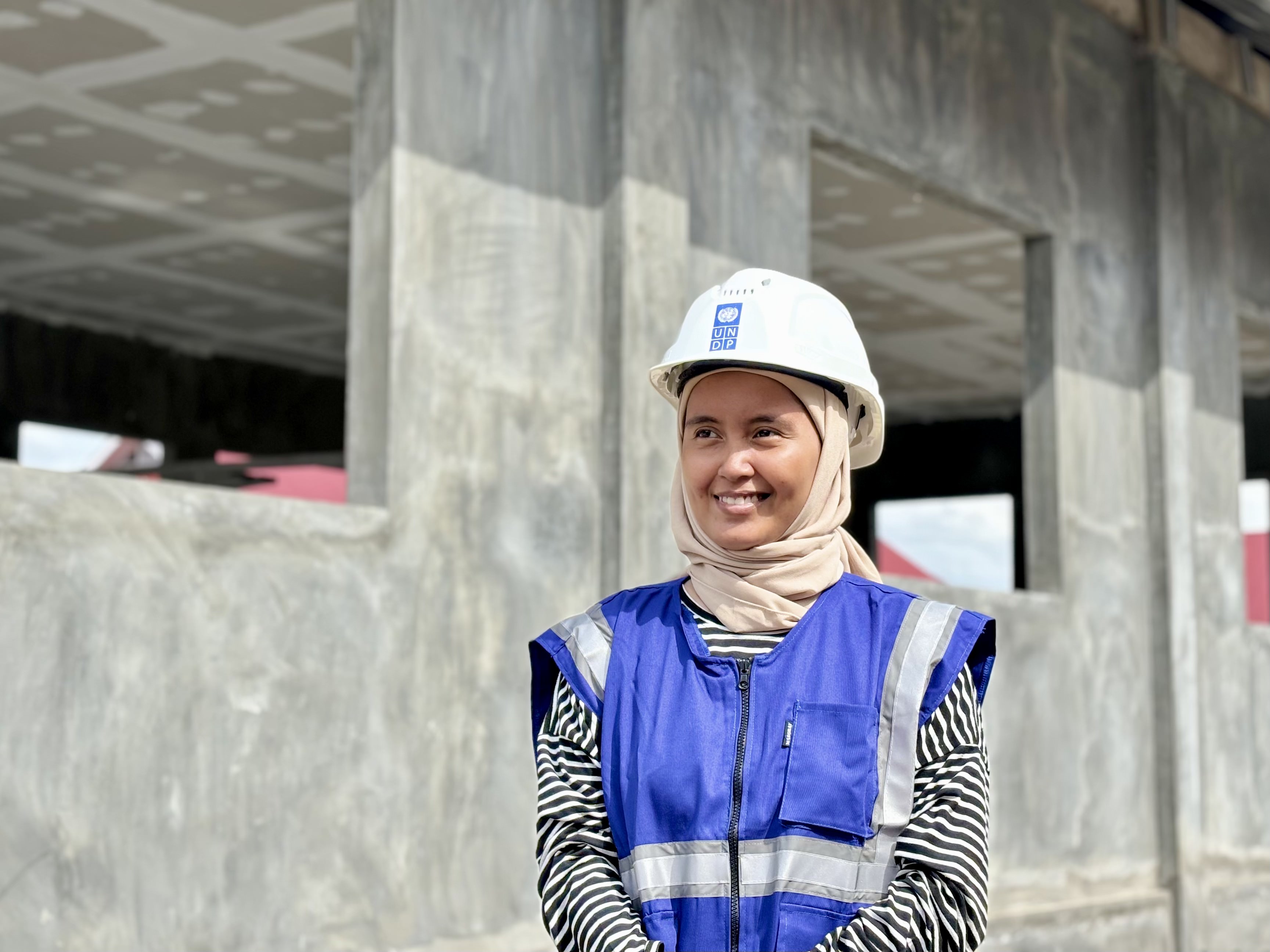
Afrini, a mechanical, electrical, and plumbing engineer involved in the reconstruction of education facilities at Sigi Vocational High School.
Meet Afrini Alfitri, a 32-year-old engineer and a mother of two, who is making waves of her own in the Programme for Earthquake and Tsunami Infrastructure Reconstruction Assistance (PETRA Project). She is the Person in Charge of Mechanical, Electrical, and Plumbing (MEP) work for the reconstruction of a vocational high school in Sidera Village and an elementary school in Jono Oge Village, in Sigi District. With her expertise, Afrini is illuminating classrooms and also illuminating the path towards a future where disaster-resistant buildings are the norm rather than the exception.
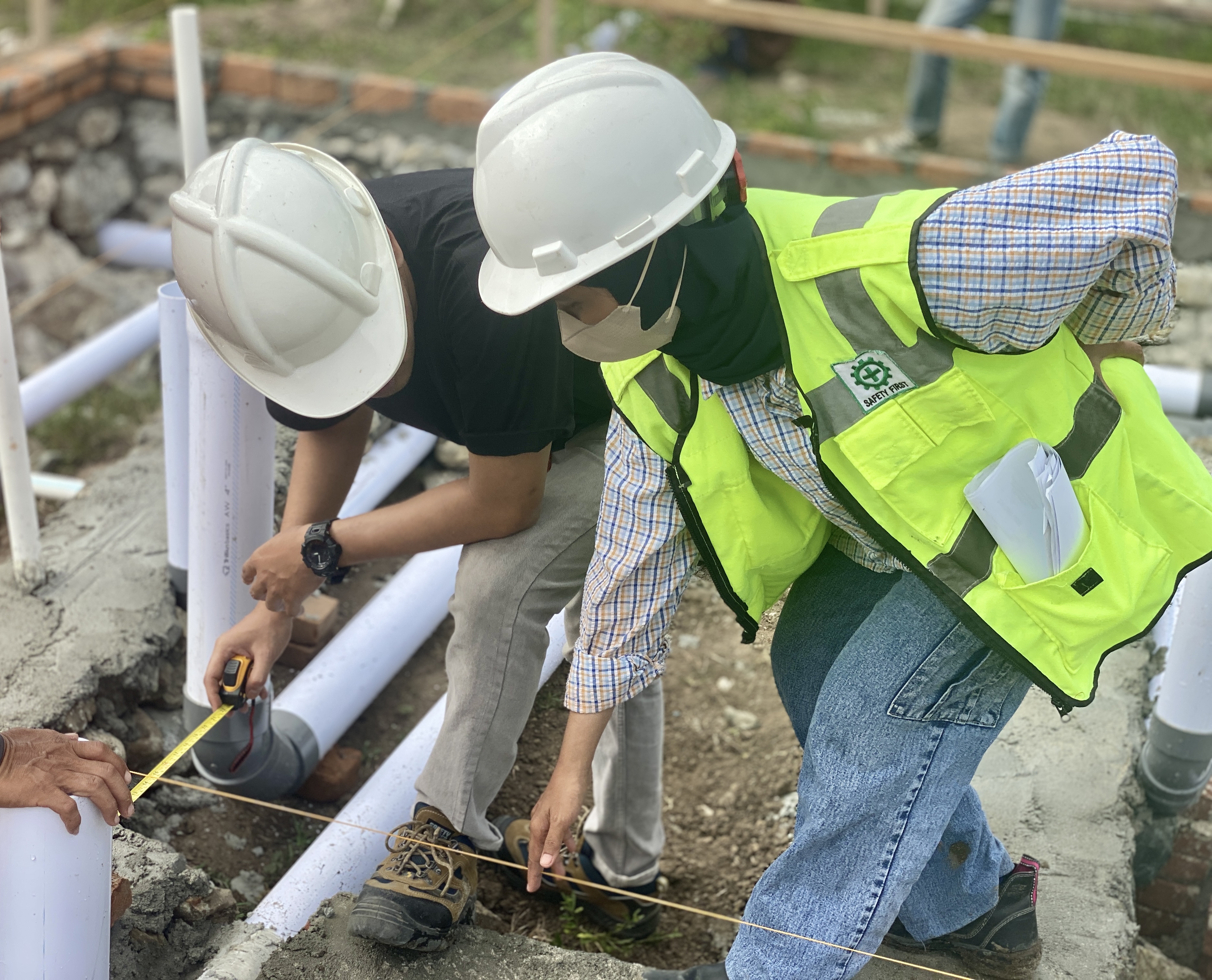
Afrini oversees the proper installation of the plumbing system at Sigi Vocational High School
Balancing the demands of work and family life as a mother of two, Afrini navigates the challenges of a male-dominated industry with grace. From ensuring that MEP work items run smoothly to collaborating with colleagues to overcome obstacles, Afrini's determination makes sure that the electrical and mechanical elements in SMKN 1 Sigi and SD Inpres Jono Oge function correctly. She ensures that the materials to be worked on are ready on site and following the technical specifications, as well as carrying out tests on various work items so that they work according to their function.
"Women have a unique perspective and approach to construction," Afrini explains. "Our attention to detail and commitment to excellence bring a valuable dimension to the field. In the PETRA Project, I've gained invaluable knowledge and experiences that have shaped me both personally and professionally."
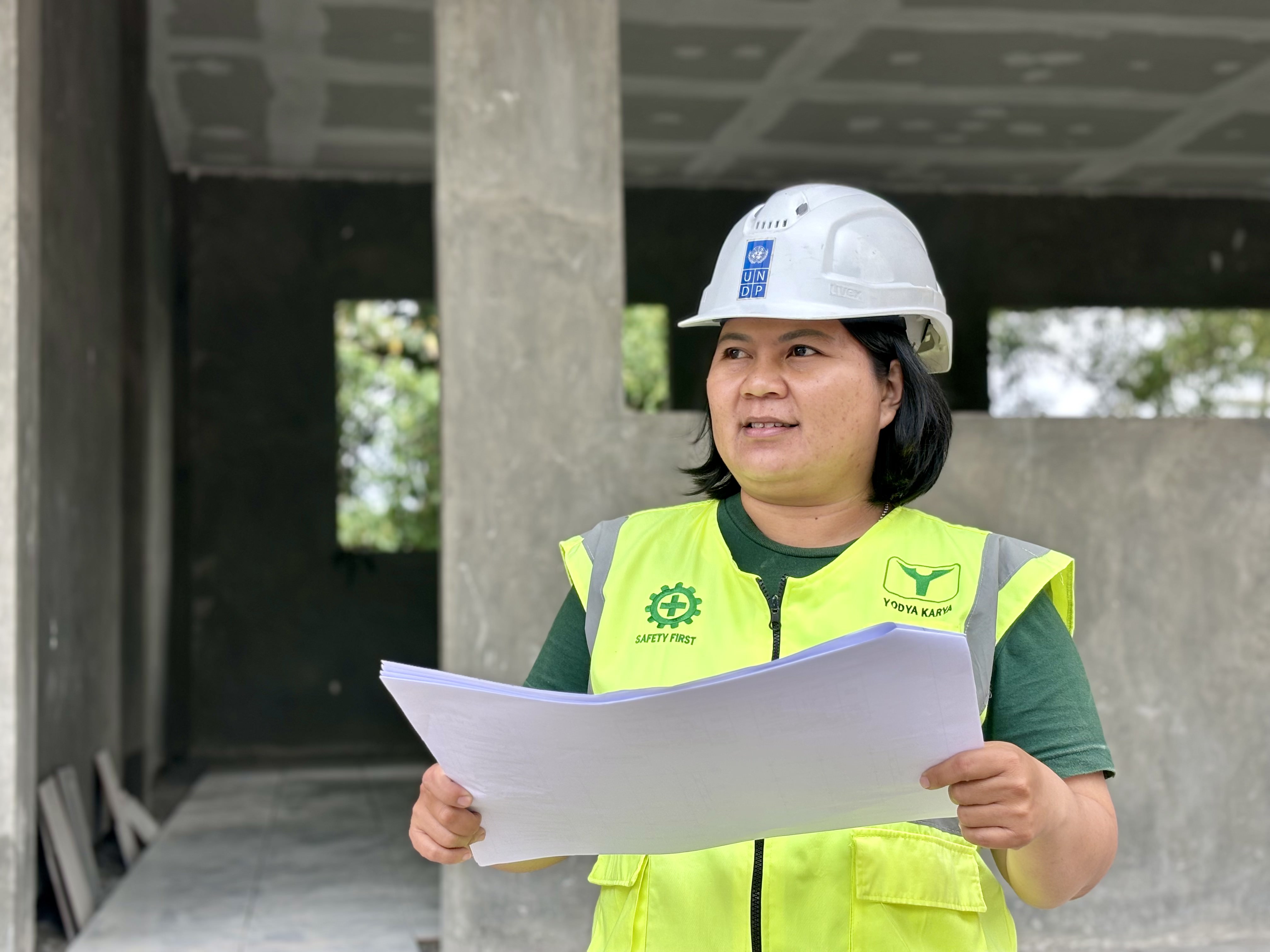
Fanni performs daily site inspection at the reconstruction of Jono Oge Elementary School
In nearby Sigi District, Fanni Fransisca Angelia, a 37-year-old inspector with a critical eye, ensures that every reconstructed school facility meets the highest standards of quality and safety. Fanni’s determination fueled her mission to create spaces where students will learn and thrive without fear of structural vulnerabilities. Local to Sigi District, Fanni realizes that in regions prone to disasters, schools are not just educational institutions; they are community hubs, shelters, and safe havens for children during emergencies.
"I view each facility inspection as a manifestation of our resilience," Fanni shares. "As women engineers, we bring unique perspectives and capabilities to the table. In the PETRA Project, gender equality is not merely a slogan. I am grateful for the opportunity to be part of this transformative initiative and hope to inspire other women to break barriers and pursue their dreams."
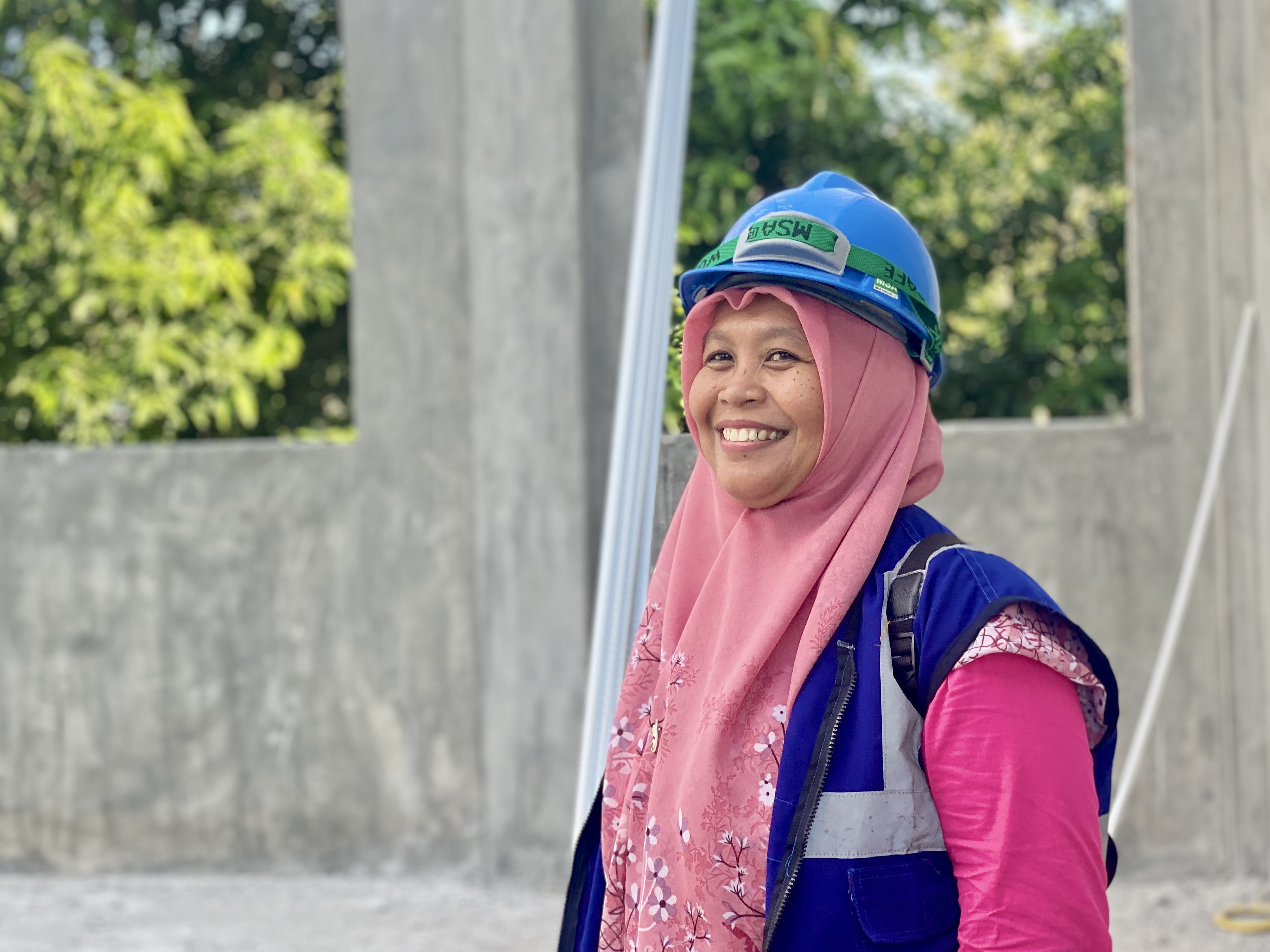
Nurhayati, a site manager responsible for the construction of four schools in Parigi Moutong
Meanwhile, Nurhayati, a 46-year-old civil engineer and a mother of four, brings over ten years of construction experience to her role. As the site manager overseeing the reconstruction of school facilities in Parigi Moutong District, she manages the start-to-finish work at three elementary schools (SDN 3 Kasimbar, SD Inpres Marantale, and SDN Toboli) and a junior high school (SMPN 1 Parigi Utara). She is weaving hope and determination into every brick laid and every beam raised in those schools.
Located 70 km from Central Sulawesi's capital, Palu, these schools are being reconstructed by engaging local communities in the design and construction, empowering them to take ownership of their safety and well-being.
"I provide guidance and direction to the workers, including setting deadlines, milestones, and schedules. In PETRA project, we ensure that the construction meets all quality and safety standards. The students deserve to have a safe space to learn that will protect them in case of another earthquake," Nurhayati remarks. "By empowering women like me in the construction process, we're laying the foundation for a brighter and more resilient future."
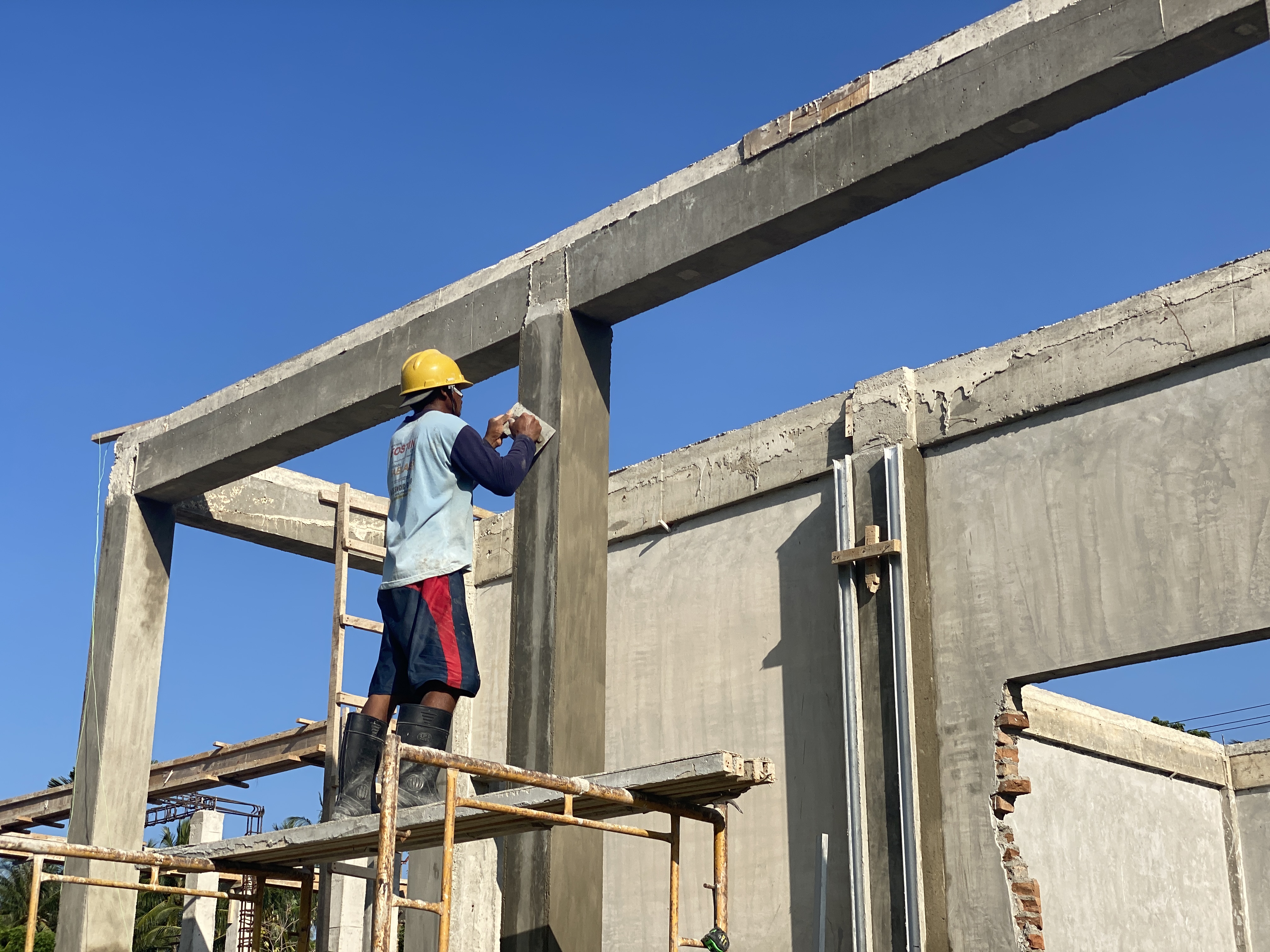
Under Nurhayati’s supervision, a worker at Toboli Elementary School focusing on the task at hand
Responsible for ensuring that construction projects are completed on time, within budget, and to the highest quality standards, Nurhayati embodies the spirit of empowerment and gender equality that defines the PETRA Project.
But the journey towards resilience is not without challenges. From gender stereotypes to balancing family responsibilities, women engineers in the construction industry face obstacles at every turn. Yet, their firm determination and resilience shine through, supported by PETRA’s commitment to gender empowerment.
Financed by the Federal Republic of Germany through its development bank, KfW, the PETRA project has been working in Central Sulawesi since 2019. The project emphasizes that to enhance resilience, a fundamental commitment to gender empowerment and addressing gender-specific needs is required. PETRA actively engaged the contractors in gender empowerment discussions before, during, and after the construction work. Ensuring equal opportunities for men and women during reconstruction and incorporating gender-sensitive designs into infrastructure projects are essential steps toward inclusive and resilient communities. By recognizing and addressing the unique challenges faced by women, we can ensure that everyone can thrive in safe and supportive environments.
As Afrini, Fanni, and Nurhayati continue to open doors for women in the construction industry, their message is clear: there are no limits to what women can achieve. From the office to the field, women have the power to shape the world around them and create a future where resilience knows no bounds.

 Locations
Locations